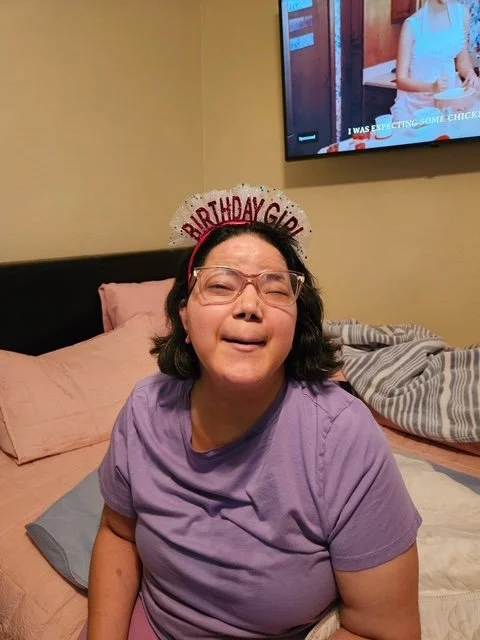Embrace the Ask: How to Seek The Support You Need
Author Chris Anselmo explores why it’s so hard to ask for help. Now, he shares his tips for how to do it with confidence.
By Chris Anselmo
When we are struggling, it is important to learn how to say: “I need help.” There is no “right” way to ask for help. But if you want to put yourself — and those helping you — in the best position possible, consider these five questions:
1. Which mental barriers are keeping me from asking for help?
I will use my rare disease experience as today’s example.
Back in 2010, when my disease symptoms first manifested, my biggest barriers were pride and vulnerability. I was so proud, so fiercely independent, that it pained me to admit that I could no longer handle what was happening to me. Asking for help would require a level of vulnerability and transparency I had never shown before, not even to my family. But if I didn’t tell them, they would figure it out one way or another. I knew it was better to be proactive.
It is important to think about which barrier (or barriers) is giving you the most difficulty. Take some time to explore the root causes of your fears and how you can address them. The more you cultivate an awareness of what is holding you back, the more confident and prepared you will feel when it comes time to ask for help.
2. What specific help do I need?
It is tempting to just blurt out, “I need help!” without going into specifics. But this is a vague request that can lead to confusion, leaving you in an uncomfortable limbo where you request help, but the other person has no idea how to respond. Take a moment to think about what would make your life easier. What specific help do you need?
In my situation, I knew that if I asked for help but didn’t back it up with the why and the how I could make the situation worse. This would be a disservice to both parties. I was in desperate need of emotional support. I also would need help with everyday activities, from laundry to grocery shopping — anything that involved carrying heavy objects up the stairs.
3. Who is best suited to help me?
Once you know what help you need, the next step is figuring out the right person to ask. It may end up being that different people provide different kinds of help. One person usually can’t do everything, and that’s okay. Think about the strengths (and weaknesses) of those you might ask. Are some people better at offering emotional support? Are others good problem solvers? Is there anyone who’s dealt with what you’re going through?
In my circumstance, my family and friends were well suited to play complementary roles. For emotional support, I would look to my parents and sister. For day-to-day needs (laundry, groceries, etc.), I would rely on my roommates since my parents lived out of state.
4. What boundaries shouldn’t be crossed?
Many times, when we ask for help, we forget to set appropriate boundaries. But this is a key consideration if we want to avoid future awkwardness and hurt feelings. Is there an area of your life that is off-limits? Is there a line that shouldn’t be crossed? Make it clear upfront.
I knew I would need my roommates to help me with heavy objects. I didn’t want them to have to ask each time before jumping in. But I didn’t want this automatic help to extend to every aspect of my life. There were still tasks I wanted to do by myself, like cooking and going for walks.
5. What’s the best communication strategy?
Under normal circumstances, you might have a preferred communication method — phone call, text, email, face-to-face — but when it comes to asking for help, not all methods are equally effective. When asking for help, it is better to go into detail and fully explain your situation. In-person or a phone call usually works better than text.
Next, consider your rollout strategy -- do you want to tell everyone at once, or have separate conversations? Is one person prone to gossiping with others? If so, you might want to ask them last. In my situation, Thanksgiving was coming up, and it was the perfect opportunity to tell my family. Then, when I got back to Boston, I would tell my roommates.
“Asking for help was a turning point for me. My life would have been infinitely more difficult had I continued fighting alone.”
A weight off my shoulders
When I told my parents and sister over Thanksgiving, I came clean and told them everything. There was so much about my condition that I had previously withheld. I explained that I was starting to crack under the strain and needed their support. They were shocked to hear about the severity of my condition but understood it was a heavy topic to share. Most of all, they reiterated their love for me and offered to do anything I needed. When I returned from Thanksgiving break, I was ready to tell my roommates, only I couldn’t figure out the best method. Unlike my family, they didn’t know I had a disease, even if they noticed I was starting to slow down.
As an introvert, I realized it would be too uncomfortable for me to tell them in person. Instead, I sent them a long email while I was at work. This way, I could state exactly what was wrong from afar. At night, when we were all sitting in front of the TV, I answered any remaining questions about my prognosis, and what assistance I needed. They were happy to help. Once everyone finally knew, a massive weight was lifted off my shoulders and I could breathe again.
Final thoughts
Looking back on this important time in my life, I realize that my fears, although valid, were overblown. Although my circumstances forced my hand, asking for help was a turning point for me. My life would have been infinitely more difficult had I continued fighting alone. Asking for help is never fun, but it can be life-changing. The key is to learn how to get out of our own way.
If you would like to read more of Chris Anselmo’s writing, please visit his site, Hello, Adversity.































